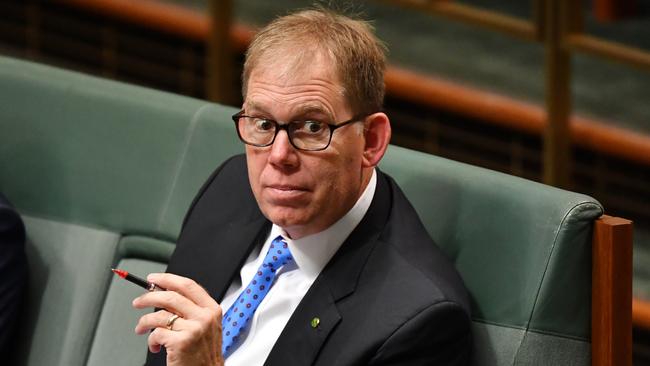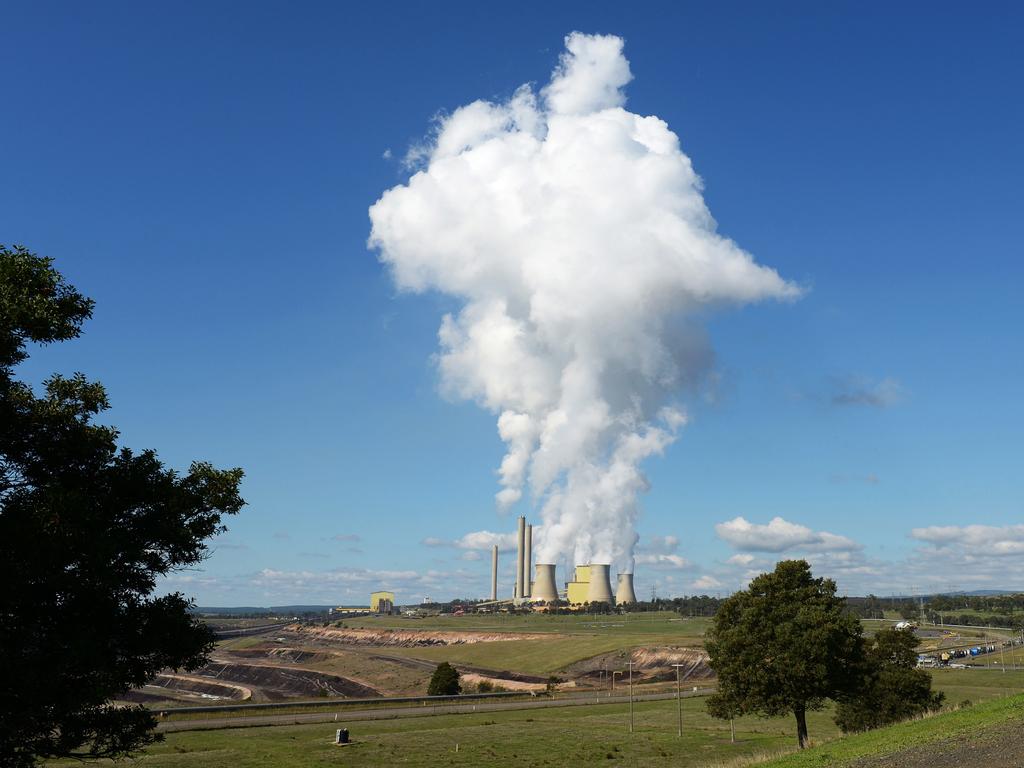Scott Morrison’s hard sell on 2050 net-zero climate target
Only 12 government backbenchers have publicly thrown their support behind net-zero emissions by 2050.

Only 12 government backbenchers have publicly thrown their support behind a target of net-zero emissions by 2050, highlighting Scott Morrison’s internal difficulties in bringing the Coalition behind the policy before the Glasgow climate conference.
A survey of the backbench conducted by The Australian shows another nine MPs are open to backing the 2050 target if the plan being finalised by Energy Minister Angus Taylor shows it can be achieved without harming the economy and regional jobs.
The Coalition MPs open to backing the target include conservative Liberal senator Jim Molan and Nationals MPs Michael McCormack, Darren Chester and Damian Drum.
In a sign of a shift in sentiment on climate change since Malcolm Turnbull was blasted out of the prime ministership in 2018, just six Coalition MPs have declared they outright oppose backing the target.
Only three Liberals – Garth Hamilton Gerard Rennick and Eric Abetz – said they were not supportive of targets. “We shouldn’t be shoehorning into a particular target for the sake of a target. But the cleaner the emerging technology, clearly the better,” Senator Abetz said on Monday.
The majority of the 68 backbenchers were undecided or are refusing to outline their position on the target of net zero by 2050.
Coalition sources say the plan for a zero-emissions future is likely to be released within a fortnight, with the issue to be debated by the Coalition partyroom in the sitting fortnight starting on October 18. Government sources say that while the position is not finalised, it would be unlikely that Mr Morrison would omit a firm 2050 target from the plan.
This is despite internal speculation that Mr Morrison and Mr Taylor are considering releasing a plan showing Australia will reach carbon neutrality by 2050 but without committing to formal targets. A Coalition source said Mr Morrison would be “laughed out of town” at the Glasgow conference if the plan omitted a formal target.
Moderate Liberal MPs said it would be “crazy” to omit a formal target from the plan, warning metropolitan seats would be put at risk if the government did not commit to a 2050 target.
Highlighting the government’s sensitivity to the issue ahead of Glasgow, chief whip Bert van Manen sent a message to all backbench MPs telling them to ignore The Australian’s request for their views on net zero.
“Hi colleagues, The Australian is ringing around for views on net zero, please do not respond to surveys. Thank you, Bert,” Mr van Manen told MPs.
When asked why he was trying to muzzle MPs, Mr van Manen said in a text message: “I don’t discuss whips’ business.”
But Mr Drum, the chief Nationals whip, declared he would back a target of net zero by 2050 “as long as it doesn’t hurt the regions”. “That’s pretty much the National Farmers Federation’s view and mainstream Australia’s view,” he said.
NSW senator Andrew Bragg said Australia should aim to do better than reaching net-zero emissions by 2050. “I think we can become an exporter of abatement services,” Senator Bragg said. “Why wouldn’t we have a (2050) target? You have to have a target.”
West Australian senator Ben Small said a net-zero target had become an inevitability due to international market forces.
“However, we must not be conned into the smoke and mirrors of a grandiose target without a plan,” he said.
West Australian MP Rick Wilson – whose large southern electorate of O’Connor includes one of the nation’s mining centres, Kalgoorlie – said he supported the aspiration for net-zero by 2050 as long as the regions were protected. “I support the government’s aspiration but not at the financial cost of the agricultural and mining sectors across my electorate,” he said.
In an interview with The Australian, published on Monday, Mr Morrison said he was advocating for climate action involving realistic “plans, not just a number and a date”. Asked if he would commit to a specific climate target, the Prime Minister said: “I can assure you we will have a plan.”
Resources Minister Keith Pitt said the Nationals’ support for a 2050 target would depend on the price and who’s paying for it. “Once again it comes down to what’s the price and who’s paying it, and it won’t be the people of regional Australia,” he said.
Liberal MP Tim Wilson, who represents the affluent Melbourne electorate of Goldstein, said the Nationals needed to recognise a zero-emissions future was “filled with opportunity” for rural and regional communities.
Mr Wilson said he didn’t believe excluding the agricultural sector from any net-zero climate policy was a viable solution. “I see a lot of the issues that face rural and regional communities as ones where there will be an investment which will contribute to greater jobs and greater opportunity and I don’t want to carve them out of that conversation,” he said.
Additional reporting: Max Maddison, Charlie Peel







To join the conversation, please log in. Don't have an account? Register
Join the conversation, you are commenting as Logout